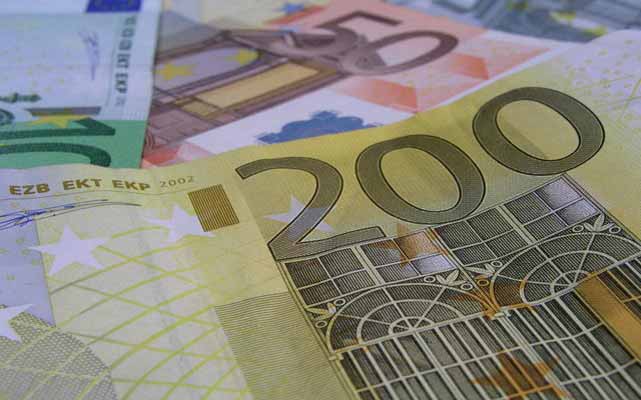British Pound to Euro Forecast: GBP Dips on Reeves UK Tax U-Turn
- Written by
David Woodsmith

The Pound Sterling to Euro exchange rate (GBP/EUR) slumped to fresh 30-month lows near 1.1310 on Thursday after weaker-than-expected UK GDP figures and renewed political tensions triggered another wave of selling.
Sentiment was hit further by reports that Chancellor Rachel Reeves has scrapped plans for income tax hikes, intensifying uncertainty over how the government will fill a £30bn fiscal gap ahead of the November Budget.
The shift unsettled markets, with investors fearing that alternative measures could prove more inflationary and complicate the Bank of England’s rate-cut path.
The Pound was subjected to another round of selling after the latest UK GDP release, especially as the data will reinforce concerns over the budget.
The data will also reinforce expectations that the Bank of England will see scope to lower interest rates at the December meeting.
The Pound is also still being unsettled by on-going speculation over a leadership challenge to Prime Minister Starmer.
The Pound to Euro (GBP/EUR) exchange rate hit fresh 30-month lows at 1.1310.
According to ING; “After the Budget, we could see the pair settle around 0.88, (1.1360 for GBP/EUR) but downside risks for sterling won’t be exhausted in the short term.
Mohamad Al-Saraf, FX strategist at Danske Bank, added; "We think the UK economy is weaker relative to the euro area, which should pave the way for a weaker pound here."
Notable support levels are 1.1240 and the long-term key figure of 1.11.
GDP was reported as declining 0.1% for September compared with consensus forecasts of no change while the August figure was revised to show no growth compared with the flash estimate of 0.1% growth.
There was a sharp 2.0% decline in industrial production while the construction sector and services sectors both secured 0.2% growth.
The manufacturing sector was hit by the cyberattack on Jaguar Land Rover (JLR) with a slump in car production.
ONS Director of Economic Statistics Liz McKeown commented; “Across the quarter as a whole manufacturing drove the weakness in production. There was a particularly marked fall in car production in September, reflecting the impact of a cyber incident, as well as a decline in the often-erratic pharmaceutical industry.”
On a quarterly basis, GDP growth was held to 0.1% for the third quarter compared with expectations of 0.2% and followed 0.3% growth for the second quarter.
Capital Economics deputy chief UK economist Ruth Gregory commented; “The big picture is that the economy is struggling to gain decent momentum in the face of higher taxes and soft overseas activity. And with tax rises in the upcoming Budget likely to trim GDP by around 0.2% in 2026, there is little reason to think that GDP growth will accelerate much from here.”
ING commented; “This complicates the job of Chancellor Rachel Reeves a bit more ahead of the UK Budget, where she’ll try to reassure markets with fiscally prudent measures, whilst trying not to dampen growth excessively or stoke up inflation.”
SocGen expects that there will be net fiscal tightening of £30bn in the budget which will dampen growth.
STORY LINK British Pound to Euro Forecast: GBP Dips on Reeves UK Tax U-Turn

The Pound Sterling to Euro exchange rate (GBP/EUR) slumped to fresh 30-month lows near 1.1310 on Thursday after weaker-than-expected UK GDP figures and renewed political tensions triggered another wave of selling.
Sentiment was hit further by reports that Chancellor Rachel Reeves has scrapped plans for income tax hikes, intensifying uncertainty over how the government will fill a £30bn fiscal gap ahead of the November Budget.
The shift unsettled markets, with investors fearing that alternative measures could prove more inflationary and complicate the Bank of England’s rate-cut path.
GBP/EUR Forecasts: Fresh 30-Month Lows
The Pound was subjected to another round of selling after the latest UK GDP release, especially as the data will reinforce concerns over the budget.
The data will also reinforce expectations that the Bank of England will see scope to lower interest rates at the December meeting.
The Pound is also still being unsettled by on-going speculation over a leadership challenge to Prime Minister Starmer.
Save on Your GBP/EUR Transfer
Get better rates and lower fees on your next international money transfer. Compare TorFX with top UK banks in seconds and see how much you could save.
According to ING; “After the Budget, we could see the pair settle around 0.88, (1.1360 for GBP/EUR) but downside risks for sterling won’t be exhausted in the short term.
Mohamad Al-Saraf, FX strategist at Danske Bank, added; "We think the UK economy is weaker relative to the euro area, which should pave the way for a weaker pound here."
Notable support levels are 1.1240 and the long-term key figure of 1.11.
GDP was reported as declining 0.1% for September compared with consensus forecasts of no change while the August figure was revised to show no growth compared with the flash estimate of 0.1% growth.
There was a sharp 2.0% decline in industrial production while the construction sector and services sectors both secured 0.2% growth.
The manufacturing sector was hit by the cyberattack on Jaguar Land Rover (JLR) with a slump in car production.
ONS Director of Economic Statistics Liz McKeown commented; “Across the quarter as a whole manufacturing drove the weakness in production. There was a particularly marked fall in car production in September, reflecting the impact of a cyber incident, as well as a decline in the often-erratic pharmaceutical industry.”
On a quarterly basis, GDP growth was held to 0.1% for the third quarter compared with expectations of 0.2% and followed 0.3% growth for the second quarter.
Capital Economics deputy chief UK economist Ruth Gregory commented; “The big picture is that the economy is struggling to gain decent momentum in the face of higher taxes and soft overseas activity. And with tax rises in the upcoming Budget likely to trim GDP by around 0.2% in 2026, there is little reason to think that GDP growth will accelerate much from here.”
ING commented; “This complicates the job of Chancellor Rachel Reeves a bit more ahead of the UK Budget, where she’ll try to reassure markets with fiscally prudent measures, whilst trying not to dampen growth excessively or stoke up inflation.”
SocGen expects that there will be net fiscal tightening of £30bn in the budget which will dampen growth.
International Money Transfer? Ask our resident FX expert a money transfer question or try John's new, free, no-obligation personal service! ,where he helps every step of the way, ensuring you get the best exchange rates on your currency requirements.
TAGS: Pound Euro Forecasts
Comments are currrently disabled
Related Stories:
- British Pound-to-Euro Forecast: GBP Steady on Iran, Energy Prices - January 14, 2026
- Pound to Euro Holds Near €1.15 - January 13, 2026
- British Pound to Euro Forecast: GBP Holds Ground Against EUR Amid Global Uncertainty - January 13, 2026
- Pound to Euro Holds Near €1.15 as Dollar Slumps - January 12, 2026
- Pound-to-Euro Week Ahead Forecast: UK Growth Critical for GBP/EUR in 2026 - January 12, 2026
- Pound-to-Euro Forecast: GBP Treads Water as UK Growth Outlook in Focus - January 9, 2026
- Pound-to-Euro Drifts toward €1.15 - January 9, 2026
- British Pound to Euro Forecast: GBP Drifts Lower After Strong New-Year Rally - January 8, 2026
- Pound Euro Steady Despite Cooling Inflation - January 8, 2026
Latest News:
- British Pound-to-Euro Forecast: GBP Steady on Iran, Energy Prices - January 14, 2026
- Pound Sterling to Dollar Forecast: GBP Stalls Below 1.35 as USD Holds Firm - January 14, 2026
- GBP/USD Forecast: Pound Sterling Firm as CPI Leaves Fed Bets Intact - January 13, 2026
- Pound to Euro Holds Near €1.15 - January 13, 2026
- British Pound to Euro Forecast: GBP Holds Ground Against EUR Amid Global Uncertainty - January 13, 2026
- Pound-to-Dollar Forecast: Powell Legal Row Undermines USD Support - January 13, 2026
- Pound to Euro Holds Near €1.15 as Dollar Slumps - January 12, 2026
- Pound Sterling to Dollar Forecast: GBP Rebounds above $1.34 on USD Shock - January 12, 2026
- Pound to Dollar Week Ahead Forecast: GBP/USD Vulnerable - January 12, 2026
- Euro-to-Dollar Forecast: EUR/USD Pressured as Markets Reassess Fed Cuts - January 12, 2026









